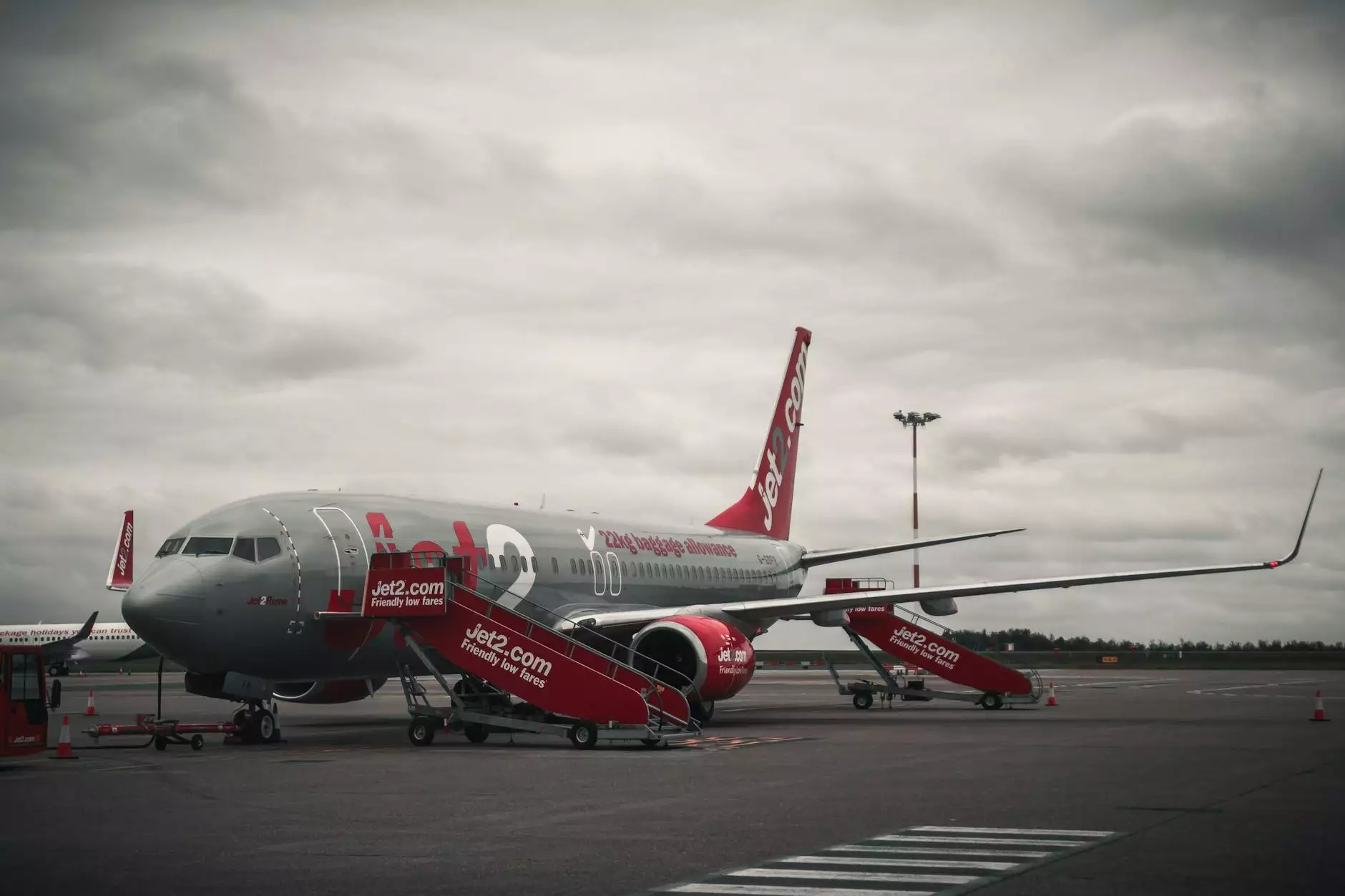Rent a Small Plane: Elevate Your Travel Experience

In today's fast-paced world, traveling efficiently is more important than ever. Whether for business or pleasure, getting to your destination quickly and comfortably can make all the difference in your overall experience. One amazing option that many people are discovering is the ability to rent a small plane. This guide aims to provide comprehensive insights into why renting a small plane could be one of the best decisions you make for your travel.
The Advantages of Renting a Small Plane
Renting a small plane offers a multitude of benefits that can truly transform your traveling experience. Let’s explore some of the key advantages:
- Flexibility: One of the greatest benefits of renting a small plane is the flexibility it offers. You can set your own schedule without the restrictions often imposed by commercial airlines.
- Access to More Airports: Small planes can land at thousands of airports that are often closer to your final destination than larger commercial airports, saving you time and hassle.
- Cost Efficiency: In many cases, especially for groups, renting a small plane can be more cost-effective than buying multiple commercial tickets. You can also split costs among passengers, making it a viable option for family trips or business outings.
- Comfort and Privacy: With more personalized space and the option to tailor your travel environment, renting a small plane offers unmatched comfort and privacy.
- Time-Saving: Skip the long security lines and waiting in crowded terminals. When you rent a small plane, you’ll spend more time enjoying your destination and less time in transit.
How to Choose the Right Small Plane for Rental
Choosing the right aircraft is crucial to ensuring a smooth journey. Here are some factors to consider when looking to rent a small plane:
1. Determine Your Needs
Before contacting potential rental services, assess your requirements:
- Passenger Count: How many people will be traveling? This will determine the size of the plane required.
- Destination: Consider the distance and whether the plane can accommodate that range without needing to refuel.
- Comfort Preferences: Do you prefer a more luxurious experience, or is a basic aircraft sufficient for your needs?
- Baggage Requirements: Ensure the plane has sufficient cargo space for any luggage, equipment, or special items you need to bring.
2. Research Rental Companies
Not all rental companies are created equal. It's essential to conduct thorough research. Here’s what to look for:
- Reputation: Select companies with strong reviews and testimonials. Check their online presence and customer feedback.
- Safety Record: Investigate the safety history of both the aircraft and the rental service. Ask about maintenance protocols and pilot qualifications.
- Insurance Coverage: Ensure that the rental includes adequate insurance to cover potential mishaps.
- Booking Flexibility: A trustworthy company will offer flexible booking options, making it easier to adjust your plans if needed.
3. Understand Requirements and Costs
Familiarize yourself with what's needed to rent a small plane:
- Pilot Requirement: Depending on your license, you may need to hire a pilot if you don’t have one yourself.
- Rental Rates: These can vary significantly depending on the aircraft type, duration of rental, and additional services. Always request a detailed quote with no hidden fees.
- Fuel Costs: Make sure to understand whether fuel costs are included or if they are separate expenses.
- Extras: Look out for potential additional charges for things like ground transportation, snacks onboard, and other conveniences.
Making the Most of Your Flight Experience
Once you’ve rented a small plane, here are some tips to enhance your journey:
1. Plan Your Route
Work with your pilot or rental company to create the most efficient route. Be sure to consider:
- Weather conditions
- Flight time
- Layovers and fuel stops if necessary
2. Pack Wisely
Given that small planes often have limited cargo space, packing light but smart is key. Here are some packing tips:
- Limit Baggage: Try to limit luggage to essential items. Soft-sided cases are easier to store.
- Bring Snacks: Having your favorite snacks on board is a great way to enhance comfort during the flight.
- Stay Hydrated: Bottled water is essential, but check with your rental service about onboard beverage policies.
Security and Regulations: What You Need to Know
When you rent a small plane, it's vital to understand the security and regulatory landscape pertaining to small aircraft:
- Airport Security Protocols: While the process may be less stringent than commercial airlines, certain security protocols still apply.
- Documentation: Ensure you have all necessary documentation for your flight, including identification and any required permits.
- Insurance and Liability: It’s imperative to understand your coverage in case of accidents or damages.
Conclusion: Why You Should Consider Renting a Small Plane
Renting a small plane opens up a world of opportunities for travel—whether you're headed for a business meeting or a weekend getaway. The combination of flexibility, time savings, and personalized service can reshape how you view travel. With the right preparation and service, you can enjoy an unparalleled travel experience, tailored entirely to your needs.
For more information on how to rent a small plane and tailor your flying experience, visit a-sparks.com. Embrace the skies and travel in unparalleled style!



